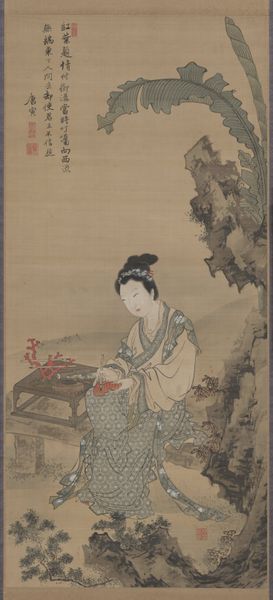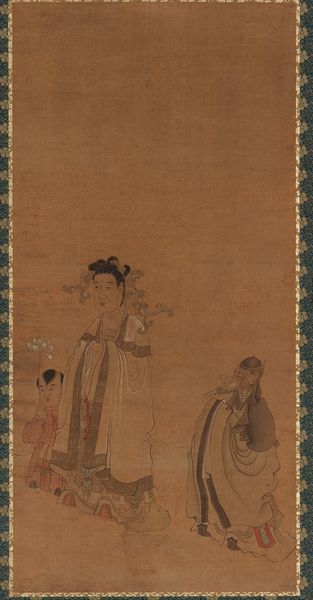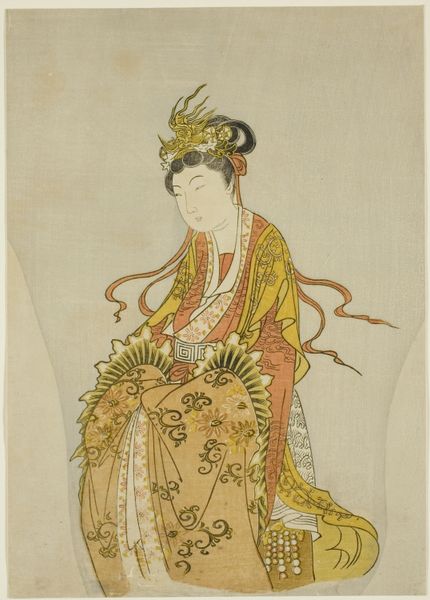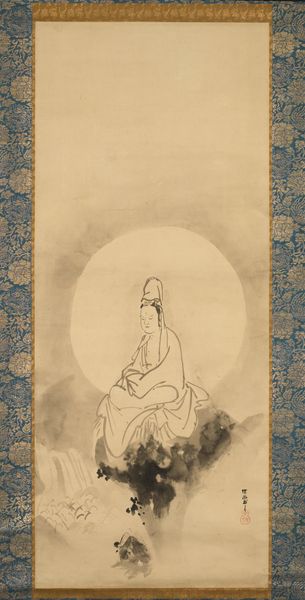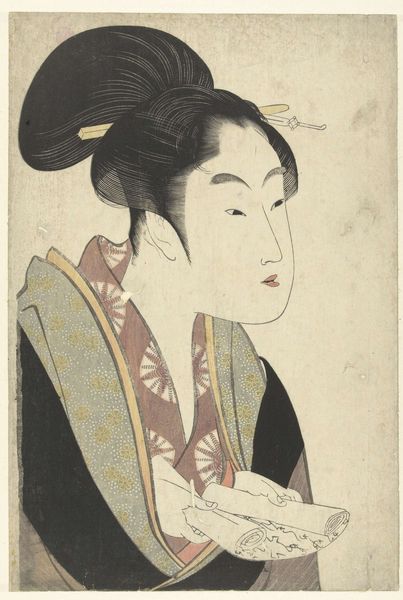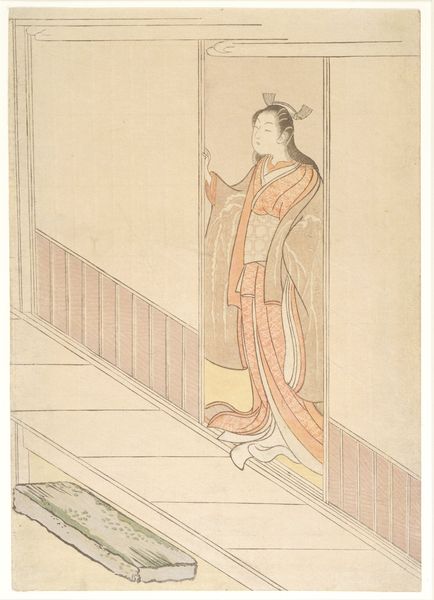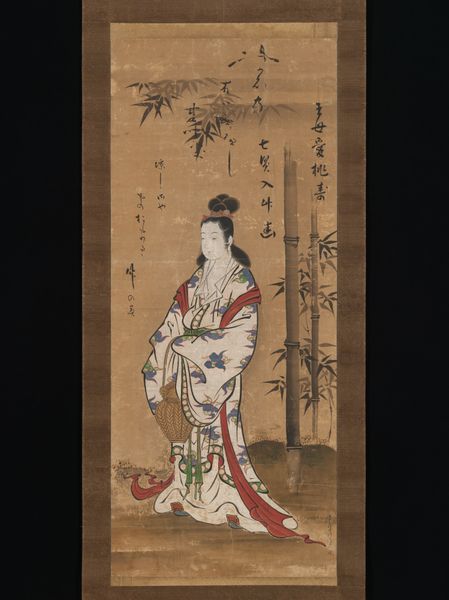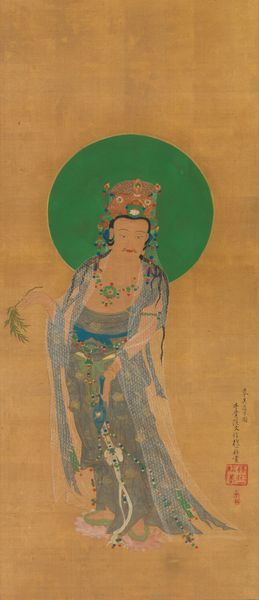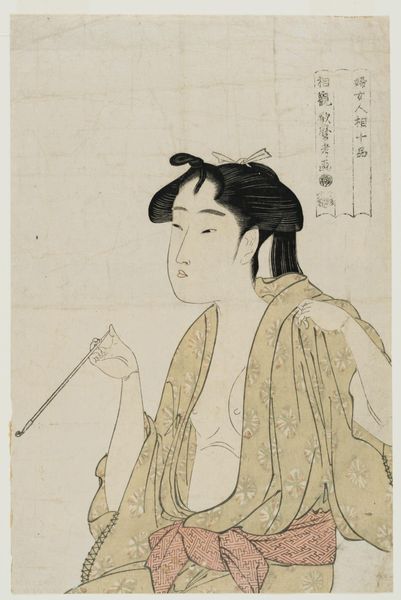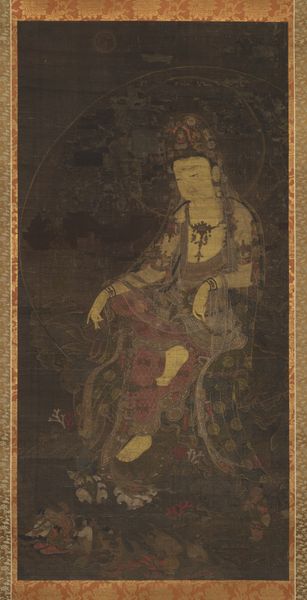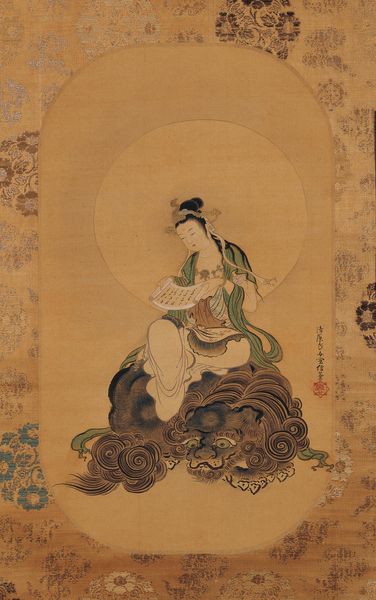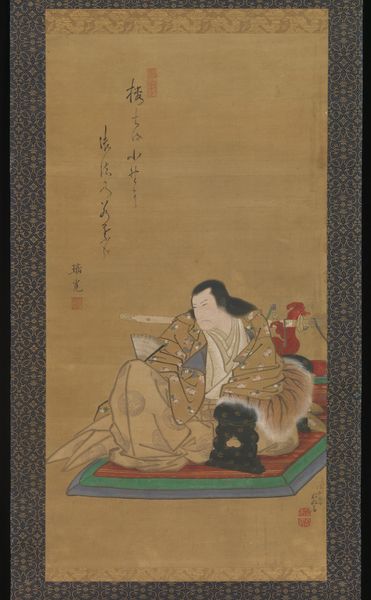
drawing, paper, hanging-scroll, ink
#
portrait
#
drawing
#
medieval
#
asian-art
#
japan
#
figuration
#
paper
#
hanging-scroll
#
ink
#
portrait drawing
Dimensions: 32 9/16 × 14 in. (82.71 × 35.56 cm) (image)
Copyright: Public Domain
Curator: This is a hanging scroll, "Manjushri Bodhisattva," rendered in ink on paper, likely from the early 15th century and attributed to Kichizan Minchō. Editor: The portrait has a calm, serene mood. I'm struck by the limited palette; the artist really utilizes the varying tones of ink. How should we understand this work? Curator: To understand this piece fully, consider not only its aesthetic qualities, but also the socioeconomic forces at play during its creation. The sourcing and processing of materials like the paper and ink, for example, speaks to the complex networks of trade and labor present in 15th century Japan. Were these materials locally sourced, or imported? What social class would have commissioned a piece like this? Editor: I hadn't considered it in terms of the materials themselves. The fineness of the lines seems significant; it speaks to specialized skill. Was this type of artwork common? Curator: Indeed. Hanging scrolls like this were products of skilled craftsmanship. How was labor divided in Minchō's workshop? Understanding that, and how the materials themselves dictated certain artistic choices, brings us closer to appreciating the true value, not just the aesthetic value, of this image of Manjushri. Was this a commission, or for the market? Was it displayed privately, or for a wider public? Editor: So, rather than just seeing the serene image, you see a whole network of people, processes, and commerce involved in its production. Curator: Exactly. By exploring the material reality, we move beyond conventional art historical narratives, and engage with a deeper, more nuanced understanding of the artwork itself. Editor: That really opens up my understanding. I’ll never look at a hanging scroll the same way. Curator: I hope that our discussion has enabled listeners to examine all art from the same approach!
Comments
minneapolisinstituteofart about 2 years ago
⋮
Monju, the bodhisattva of transcendental knowledge, was particularly revered among Zen Buddhists. In this painting by a Zen monk-painter, Monju’s wisdom is at its purest—he appears as a young boy with wispy hair, wearing a gold crown and earrings, and carrying a book of scripture. Active as a monk and semiprofessional painter at the monastery Tōfukuji in Kyoto, Kichizan Minchō and his followers built an influential painting studio specializing in the production of Buddhist images, both traditional, heavily pigmented icons as well as ink paintings like this one. Minchō was among the earliest Japanese Zen monk-painters to master the technique of monochrome ink painting, which had originated in China. He helped shape the early development of this art form in Japan, as his works and those of his followers circulated and became important models for other Zen painters active at monasteries farther afield.
Join the conversation
Join millions of artists and users on Artera today and experience the ultimate creative platform.
